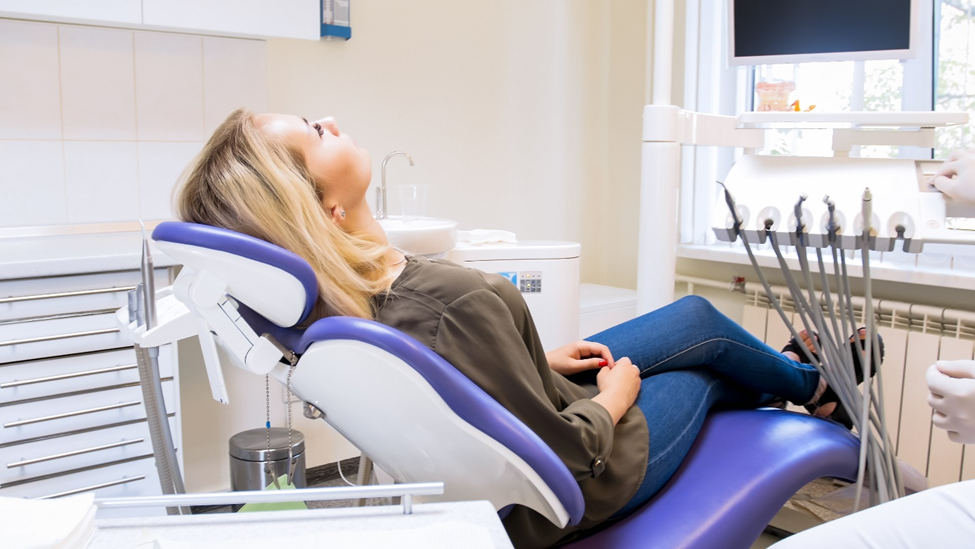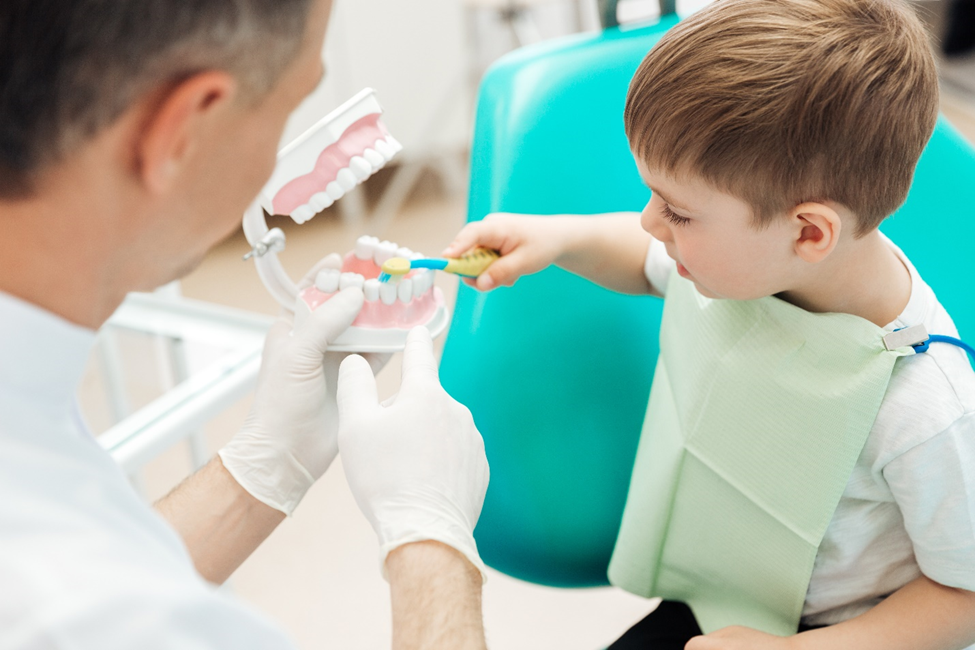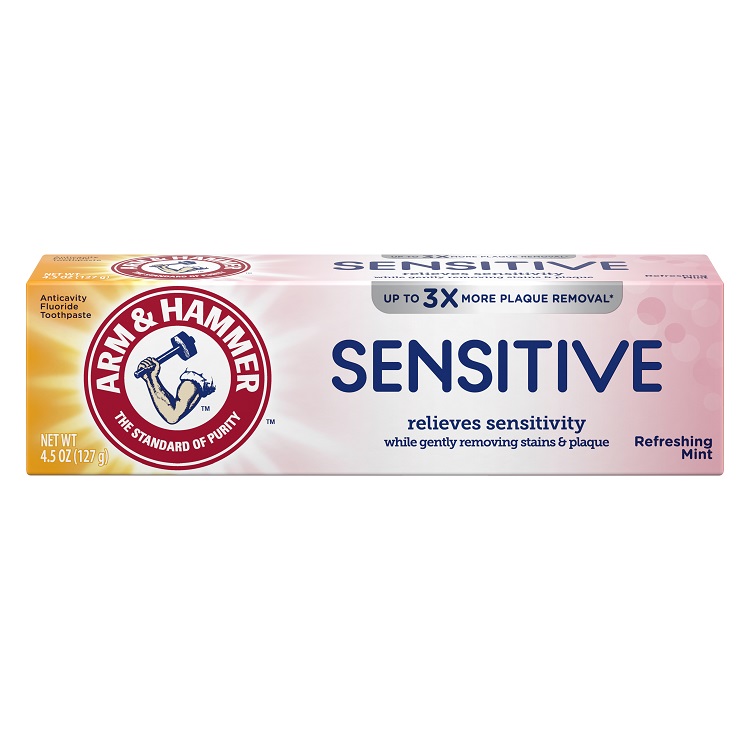All About Dental Anxiety and Tips for Overcoming Your Fear of Dentists

Going to the dentist can prove anxiety-inducing for adults and kids alike. Procedures and routine cleanings can seem uncomfortable and painful. Still, how can you have strong oral hygiene if you’re too scared to go to the dentist? These tips might help you overcome your fear of dentist visits.
What Is so Anxiety-Inducing about Going to the Dentist?
The fear of dentists generally stems from multiple factors falling under one, larger umbrella: anxiety about dental pain. Whether it’s from sensitive mouths reacting to the scraping of dental tools during cleaning, gums feeling raw or a general phobia of needles or blood or anesthesia, going to the dentist can cause anxious feelings.
But guess what? The fear of dentists is quite common! In fact, about 36% of adults in the United States are afraid of going to the dentist, according to the Cleveland Clinic. Some of those people have such an extreme fear (dentalphobia) that they avoid going to the dentist at all.
If you have anxiety about making trips to the dentist, you surely aren’t alone. The key is how you limit this anxiety so that you and your pearly whites can get the attention and care they need!
6 Tips for How to Limit Anxiety at the Dentist
You can take various steps to combat dental anxiety. Here are some tips that can help you or your child overcome their fear of going to the dentist:
1. Communicate with Your Dentist… About Everything

The most impactful, straightforward thing you can do to limit dental anxiety is to communicate your fears or concerns directly to your dentist.
Dentists are there to help ensure you have strong oral hygiene. They’re also professionals who have a very defined understanding of various procedures and tools at their disposal. As such, utilize them as a subject matter expert!
Ask your dentist about the steps involved with a potential procedure, or how they approach cleaning. Maybe you’re curious about what they’re looking for when they take X-rays, or if they have alternative image screening options. Dentists can also make suggestions of their own for relaxation techniques you can use before your visit or in the middle of a checkup.
You can ask your dentist about what you should and should not do or take leading up an appointment and after you leave your dentist’s office. For example, you might be able to take certain over-the-counter treatments for dental pain relief, but you should consult your dentist before doing so.
Lastly, speak up when something is painful! It’s your dentist’s job to help ensure your dental experience is as pain-free as possible.
2. Find a Distraction and Focus on It
Have you ever noticed how many dentist offices have music playing in the background? Your senses can serve as a valuable distraction to dental pain!
Consider asking your dentist if you can listen to music or use headphones during a cleaning or procedure. You might also inquire as to whether your child can watch television or a movie on a screen while the dentist and their assistants are at work. Additionally, you might focus on certain breathing techniques to ease any tension or help you focus on whatever you’re listening to or watching.
3. Bring Someone to Your Appointment
Having a friendly face with you might help limit your anxiety about going to the dentist! Ask a friend if they might accompany you and consult with your dentist about whether they can be in the room when you’re in the chair.
4. Ask About Anesthesia
Anesthesia might be a tool your dentist recommends to help you overcome dental anxiety. Generally, this form of sedation will come in two forms:
- If you have moderate to severe dental anxiety, conscious sedation is an option. This involves taking an oral sedative a few hours before your appointment. You will not be asleep during your appointment, but in a more relaxed yet responsive state.
- You might prefer to fall asleep during their trip to the dentist and just wake up when it’s over. If that description applies to you, ask your dentist about general anesthesia. Should you choose this route, you will be fully unconscious throughout the duration of your appointment.
It’s important to note that not all dentist offices offer general anesthesia, and those that do will only allow you this option with a dentist that has received specialized training. Moreover, you’ll want to check with your dental insurance provider to see whether they offer coverage for general anesthesia.
Aside from anesthesia, some dentists might recommend analgesics—an over-the-counter treatment, like Tylenol, that can help with pain relief—or use laughing gas. Regardless, you should speak to your dentist about any of these methods before choosing the one that could help make your dentist visit more comfortable for you.
5. Arrive Early
Rushing to your appointment is only likely to heighten any anxiety you may feel about going to the dentist. As such, it’s wise to arrive ahead of schedule! Aside from allowing you to settle in, getting to your destination early might also give you the opportunity to speak with your dentist and ask more questions about an upcoming procedure or cleaning.
6. Keep Good Oral Hygiene
Making sure you take good care of your teeth and gums can help you avoid a fear of the dentist since the visits may be shorter and less invasive. If you brush and floss regularly, your dentist is likely to commend your work and your visit may not require more than a cleaning. Good brushing and flossing techniques help protect your enamel, which can lessen the need for further dental procedures down the line.
Now, having good oral hygiene does not mean you should avoid the dentist entirely. Going to the dentist regularly is still an important part of long-term tooth and gum health!
How to Help Kids Get Over Their Fear of the Dentist

Kids might also be prone to dentist phobia. If your child is scared about visiting the dentist and sensitive to pain, try some of the following strategies to help them feel more comfortable.
Schedule Dentist Visits Early and Often
Making sure your child has regular check-ups at the dentist can help them get a better feel for the experience. The American Academy of Pediatric Dentistry recommends that you should take your child to the dentist when their first tooth appears, or no later than their first birthday.
You should schedule regular cleanings for you and your kids 2 times per year, or as often as your dentist recommends. Regular visits give dentists a chance to clean in ways that you cannot and help prevent small problems from becoming bigger issues that can lead to bigger dental bills.
Set a Strong Example
Do everything in your power to be a role model for your kids! That especially means encouraging them to brush and floss with consistency. You might also try role playing a dental cleaning so they can anticipate what the dentist will do during appointments. Let them be the dentist and you be the patient, then switch roles.
Bring a Toy or Stuffed Animal
Toys and stuffed animals can be a source of comfort for kids. Ask your dentist whether your child can hold their favorite plaything during their appointments. It might help serve as a distraction while the dentist does their work!
Clean Your Teeth with ARM & HAMMER™ Toothpastes
Maintaining healthy teeth and gums makes your dentist’s job easier and can help limit dental anxiety. Try using these ARM & HAMMER™ Toothpastes and see why brushing with baking soda can help you sustain strong oral hygiene:
- ARM & HAMMER™ Enamel Defense Toothpaste is the only toothpaste with triple enamel protection to help strengthen enamel with fluoride, neutralize enamel-eroding acids with baking soda, and repair the enamel surface with Liquid Calcium™ Technology.
- ARM & HAMMER™ Complete Care™ Whole Mouth Protection Toothpaste is a fluoride toothpaste that helps protect against cavities and control tartar while gently whitening your teeth and strengthening your enamel.
- ARM & HAMMER™ Kids Healthy Toothpaste for kids ages 2+ helps to prevent cavities and tooth decay, strengthen enamel, remove plaque, and defend against sugars and acids. It comes in a fruity bubble flavor that can help encourage your kids to brush more frequently!

